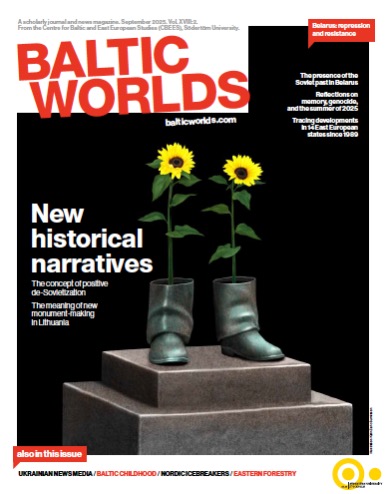Alexander Abramov, Maria Chernova and Alexander Radygin
Alexander Radygin, Director at the Institute of Applied Economic Research, the Russian Presidential Academy of National Economy and Public Administration (RANEPA), Moscow. He is also head of the Research Department and a board member at the Gaidar Institute for Economic Policy, Moscow.
Alexander Abramov, Professor at the Institute of Applied Economic Research, RANEPA. His main research interests span over the development of financial markets in Russia, with a special focus on institutional investors including pension and mutual funds.
Maria Chernova, Researcher at the Laboratory of Institutions and Financial Markets Analysis at the Institute of Applied Economic Research, RANEPA. Financial markets and financial risk management are her main research filed.
view all contributors
Articles by Alexander Abramov, Maria Chernova and Alexander Radygin
-
Scientists have not always agreed on either the causes or the possibility of restoring the cloudy, fish-poor, partially oxygen-deficient, algae-blooming, oil-slicked Baltic Sea.
Wherein lies the disagreement? There seem to be two main controversies:
1. The Baltic Sea is eutrophic. Or is the Baltic Sea not eutrophic?
2. Algae blooms are controlled by the nutrient phosphorus. Or is the bloom controlled by both phosphorus and nitrogen?
-
Even though, with the dissolution of Austria-Hungary, Galicia ceased to exist, the idea of Galicia has a kind of ghostly presence in contemporary politics. The area was incorporated in 1919—1923 in the resurrected Polish state, only to be divided twenty years later between Germany and the Soviet Union as a result of the Molotov-Ribbentrop pact. This cleaving in two endured through the “shift” of Poland westwards after the Second World War. East Galicia became part of Soviet Ukraine and thereafter of independent Ukraine.
-
“Why is there no happiness in the East?” was the, according to many, provocative title of a conference put on by CBEES and Södertörn University September 8–10 of this year.
The organizers of the conference, Teresa Kulawik, Renata Ingbrant and Youlia Gradskova, wanted to bring together feminist scholars for a discussion about conditions facing feminism in the East and in the West after the Berlin Wall, as well as the role of the EU and politics in the development of feminism.
-
The author argues that, despite the disastrous effects of the enormous brain drain for Russia’s development, the emergence of Russian communities abroad can also be seen as an indicator of a normalization resulting from the opening up of the country after a long period of isolation. For Berlin, it is the regeneration of the mixed and more cosmopolitan society of the pre-Nazi and prewar epoch.
-
When the preliminary electoral results came in the evening of 17 September, two things were rather clear. First, the Harmony Centre (Saskaņas centrs, SC) seems to be the winner of the extraordinary parliamentary elections in Latvia. Second, the so-called oligarch parties have suffered a humiliating defeat.
-
Natalia Zubarevich, Department of Geography, Moscow State University, is keynote speaker at Baltic Worlds Annual Roundtable: Market Reform and Socio-Economic Change in Russia, October 6. She notes a growing polarization between people and regions. Modernization is necessary.
-
By matching agent lists with agent reports from the Stasi archives, Professor Almgren, who is affiliated with Södertörn University, has delved deeper into issues relating to particular individuals than the Swedish security police have.
She has established the incompetence of the Swedish security police and their inability to uncover threats to Sweden at the time.
-
Dag Hammarskjöld died on the night of September 17, 1961 after a still unexplained crash landing in the border area between the former Belgian Congo and Northern Rhodesia, when he was on his way to negotiate during the Congo Crisis.
The author argues that Dag Hammarskjöld as a cosmopolitan is the trailblazer of a way of thinking that is still totally absent despite economic globalization: respect for those who are different.
-
This year’s Baltic Sea Festival, held for nine days in late summer in Stockholm and focusing on music and the environment, was true to form with Esa-Pekka Salonen at the helm. Not only that: the thematic threads were unusually well intertwined.
-
The 2011 election will differ from the previous elections in two important ways: First, there is a real likelihood for a change in government with Social Democratic leader Helle Thorning-Schmidt taking over as prime minister. Second, the campaign so far has been dominated by debates about the state of the economy while immigration and health care, the major themes of the three previous campaigns, have played only a minor role.
-

 Issue 2025, 2:
Issue 2025, 2: